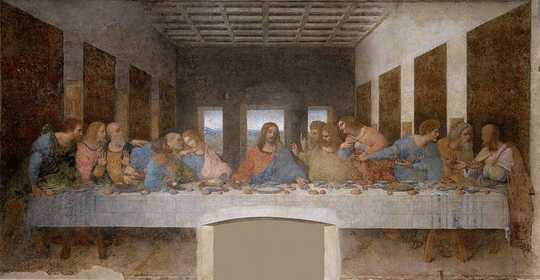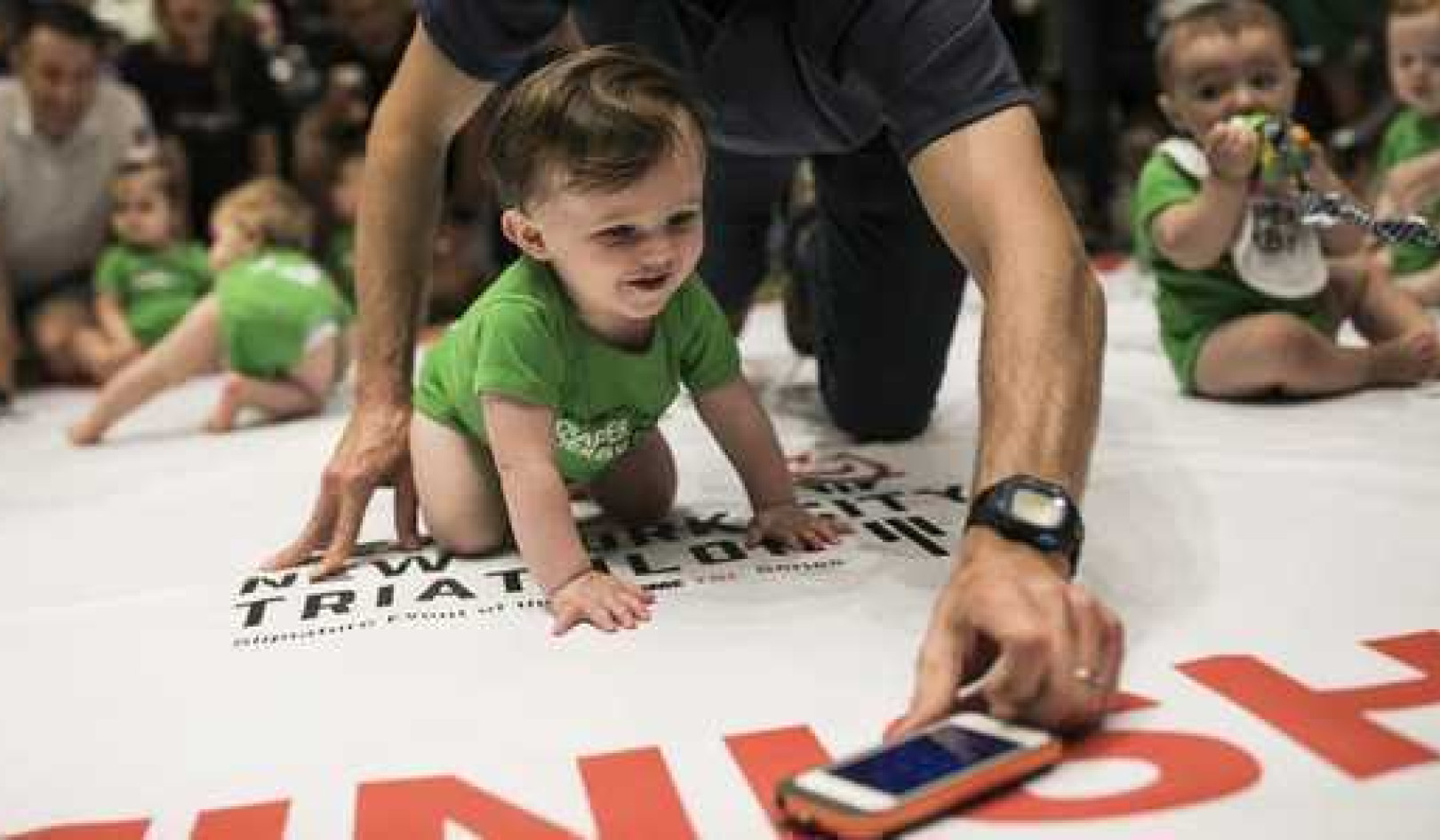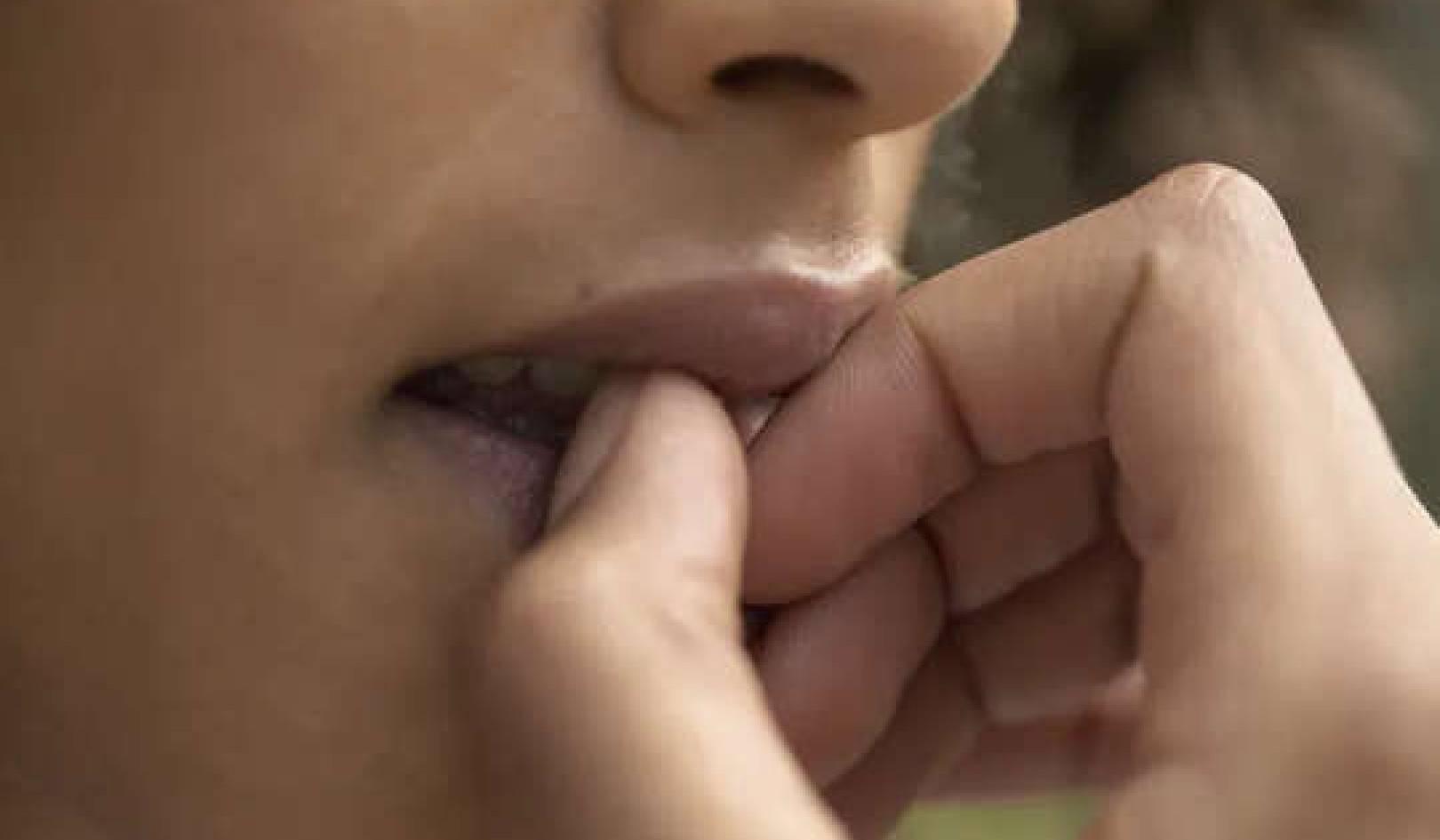 Before social distancing. Leonardo da Vinci, Chiesa di Santa Maria delle Grazie
Before social distancing. Leonardo da Vinci, Chiesa di Santa Maria delle Grazie
With churches closed and annual pilgrimages cancelled, Christians across the world are wondering how to give thanks to God this Easter. And not just Christians – think also of “Chreasters”. Do you attend church only at Christmas and Easter? If so, you’re a Chreaster, and you’re not alone – research shows that Church of England attendance can increase by 50 to 100 per cent at those times.
Even if we assume that most Chreasters attend church for cultural rather than strictly religious reasons, there will still be something missing for them and regular churchgoers this year. The lost opportunity to gather with one another in a community, to experience thanks and praise – and to do so within buildings often hundreds of years old, with songs and spoken words often thousands of years old. It is a lost opportunity felt most grievously when now is a time of loss – loss of normality, of society and, desperately, of individual life.
Christians – perhaps more than Chreasters – face another dilemma: should they support the decision to close churches or oppose it as others from various denominations have done. Christians have risked suffering and death to worship before, so why not now, runs the argument.
There is no easy answer to that question. However, one response is to reimagine the notion of pilgrimage. As we follow government advice to “stay at home” it is possible to be stay-at-home pilgrims. Stay-at-home or (to borrow from Max Weber) “everyday pilgrimage” is particularly associated with the Protestant Reformation.
Martin Luther and faith
Some of the most dramatic passages in Martin Luther reinterpret the relationship between work and worship. He describes changing nappies, being a soldier, and even executing criminals as Christian works of love, if they are performed as expressions of faith.
In Luther’s theology, it is impossible for anyone to earn righteousness by works: going on a pilgrimage, becoming a monk, and changing nappies are just as ineffectual when it comes to salvation. Righteousness is sola fide, faith alone: the belief in Christ’s death as an atoning sacrifice for humanity’s sin – the sacrifice that Christians celebrate at Easter. But it is better to change nappies than to be a monk or nun, according to Luther (himself a former monk), who disliked the way they isolated themselves from not just everyday life, but ordinary human biology.
Monks and nuns exhibit the “sin” of “pride” – they think they can make themselves holy by contradicting a direct edict from God to “Be fruitful and multiply”. Rather than undertake monastic vows, Luther insisted that men and women glorify in family life – specifically recommending that fathers view changing nappies as something that can be done in “Christian faith”.
Just like monks and nuns, the belief that pilgrimage must be a literal journey encourages people to think there are special places and activities that can make them holy – places and activities not muddied by ordinary life. But it is ordinary life that God created and into which he became flesh and blood. And it is ordinary sinners that he saves. For Luther, a Christian who changes nappies to care for family is not trying to earn something, but to be something: a faithful Christian who imitates Christ by loving and serving others.
Plough as pilgrimage
Although stay-at-home pilgrimage is more obviously Lutheran, it is a theme in works on pilgrimage prior to the Protestant Reformation. William Langland’s 14th-century Piers Plowman criticises those who go on pilgrimage in search of holy shrines but not “truth”. Eventually, some genuine truth-seeking pilgrims appear and travel with Piers – but then they have to stop to help plough his “half-acre” field – it seems that this is the pilgrimage, rather than a distraction from it.
Similarly, The Testimony of William Thorpe distinguishes between “true” and “false” pilgrimage. Thorpe was on trial for being a Lollard, a religious group that started in England in the 14th century. The Lollards anticipated many of the beliefs associated with the later Reformation, including the first efforts to translate the Bible into English so that ordinary people could read it.
For Thorpe, true pilgrims are “discreet” where as false pilgrims make showy trips to Canterbury – which are just self-indulgent holidays. So indulgent, Thorpe laments, they even include playing bagpipes.
Bagpipes aside, the category of “everyday pilgrimage” is not itself without problems. Weber associated it with the rise of capitalism – and, by extension, the contemporary philosopher Charles Taylor and Cambridge University theologian Michael Banner have seen it as underpinning the rise of a secular, consumerist society. If true pilgrimage is work and family life, it is not long before making money and having children are our religion.
But this is just to say “everyday pilgrimage”, like actual pilgrimage, is not an answer on its own. It would need, for example, to be part of a wider denominational reimagining of the digital church services that are happening this Easter.
In the present crisis, we can think of “everyday pilgrimage” together with John Bunyan’s more famous The Pilgrim’s Progress (1678). Here, the character “Faithful” (one of the theological virtues: faith) learns from “Christian” (a Christian on his spiritual journey) that “a work of grace” is discoverable by “heart-holiness, family-holiness … conversation-holiness”. This is because, Bunyan writes:
The soul of religion is the practic[al] part … to visit the fatherless and widows in their affliction, and to keep himself unspotted from the world.
Sadly, in the time of coronavirus, it is sometimes by not visiting others that we are loving them. But if our action (or inaction) each day is the best we can do in our current situation – and we are motivated by an “unspotted” or humble affection for the most vulnerable in society (our own “fatherless and widows”) – we can, like Bunyan’s Christian, count ourselves pilgrims, progressing together, faithfully through, and hopefully beyond, this present valley.![]()
About The Author
Dafydd Mills Daniel, McDonald Lecturer in Theology and Ethics, University of Oxford
This article is republished from The Conversation under a Creative Commons license. Read the original article.

Related Books:
Prayer Journal for Women: 52 Week Scripture, Devotional & Guided Prayer Journal
by Shannon Roberts and Paige Tate & Co.
This book offers a guided prayer journal for women, with weekly scripture readings, devotional prompts, and prayer prompts.
Click for more info or to order
Get Out of Your Head: Stopping the Spiral of Toxic Thoughts
by Jennie Allen
This book offers insights and strategies for overcoming negative and toxic thoughts, drawing on biblical principles and personal experiences.
Click for more info or to order
The Bible in 52 Weeks: A Yearlong Bible Study for Women
by Dr. Kimberly D. Moore
This book offers a yearlong Bible study program for women, with weekly readings and reflections, study questions, and prayer prompts.
Click for more info or to order
The Ruthless Elimination of Hurry: How to Stay Emotionally Healthy and Spiritually Alive in the Chaos of the Modern World
by John Mark Comer
This book offers insights and strategies for finding peace and purpose in a busy and chaotic world, drawing on Christian principles and practices.
Click for more info or to order
The Book of Enoch
translated by R.H. Charles
This book offers a new translation of an ancient religious text that was excluded from the Bible, offering insights into the beliefs and practices of early Jewish and Christian communities.























